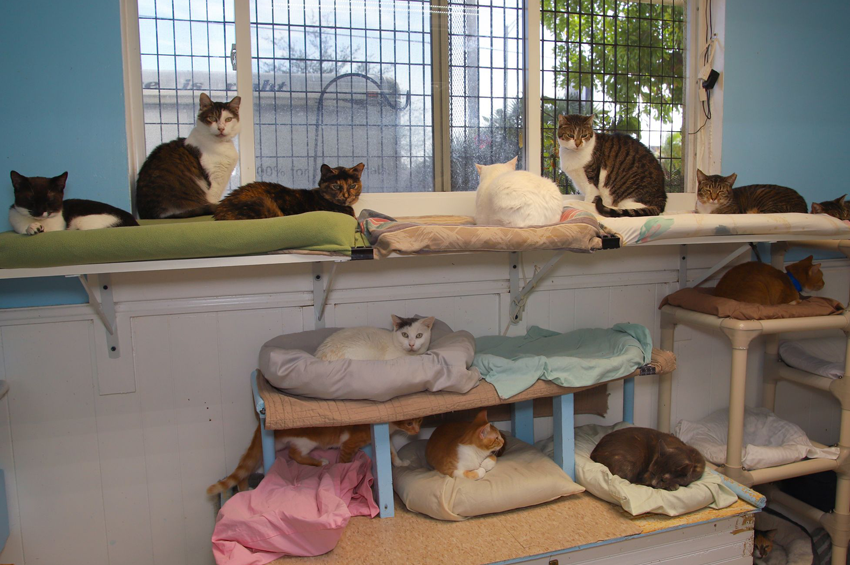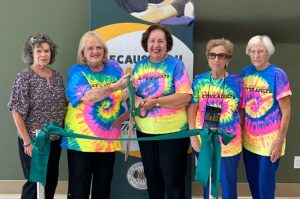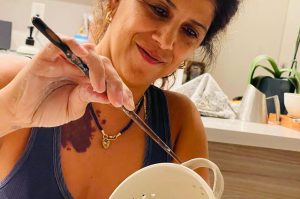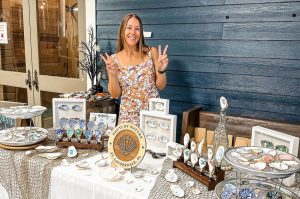Upon walking through the door of Animal Aid at 571 NE 44th Street (Prospect Road), the first thing you notice is a large cage full of kittens: gray ones, striped ones, calico ones, tuxedo ones. There are kittens sleeping, kittens playing, kittens staring at you, kittens approaching you with a friendly or plaintive “meow.”
Animal Aid: A Vision and a Mission
Founder Tamera Sparkman explains that the kittens are the offspring of feral cats, which makes perfect sense, as she started Animal Aid in 1996 for the express purpose of trapping, spaying/neutering, and returning feral cats to their original locations. The organization works through Broward County as well as several mobile trappers, spaying or neutering 20–30 cats a day.
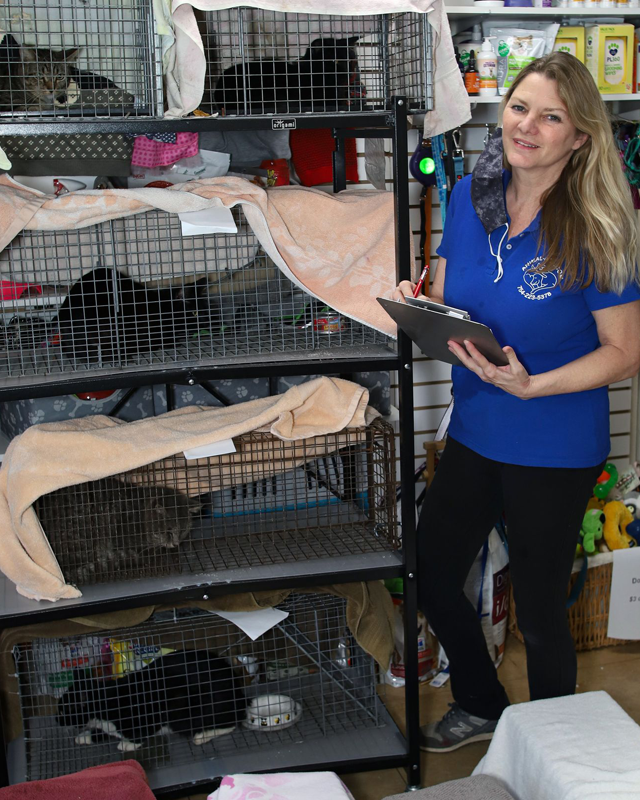
It has since evolved into a rescue group and a veterinary clinic as well. The adoption center, which opened in 1999, places kittens they don’t want to put back on the street in welcoming homes. But Tamera’s main motivation is still her wish to see all the cats in Oakland Park spayed or neutered.
Near the kitten cage is an assortment of smaller cages, each with a single adult cat waiting to be spayed or neutered and given medical treatment. Some are covered gently to help minimize fear and aggression among the group, which must already be experiencing a high stress level.
In the nearby vet trailer, one of the six vets who work for Animal Aid is about to start her next spaying operation. People who bring their own cats in to be spayed or neutered can drop them off in the morning and pick them up the same day.
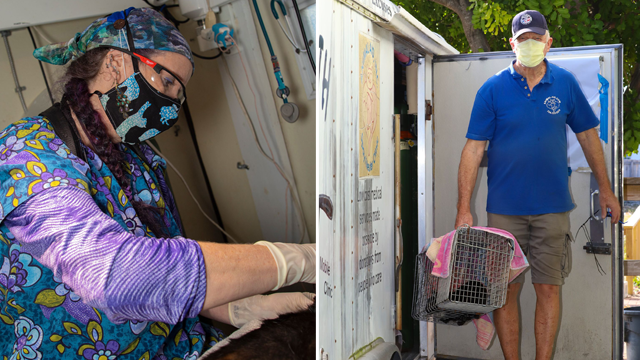
Operating in a Pandemic
Tamera explains that due to COVID, things at Animal Aid have been more difficult. There have been extra surrenders, by people who have had to move out of their homes and couldn’t take their animals and from the homes of people who have died without anyone to take an animal in.
On top of that, Animal Aid hasn’t been able to hold its monthly fundraisers at supportive area bars and restaurants. And it had to close its thrift store, which has reopened only slowly, with restrictions.
We depend entirely on donations and are really struggling to keep this program going.
Tamera Sparkman
“Although we have a grant now from Broward County through PETCO, we have to figure out a way to fundraise”, she adds.
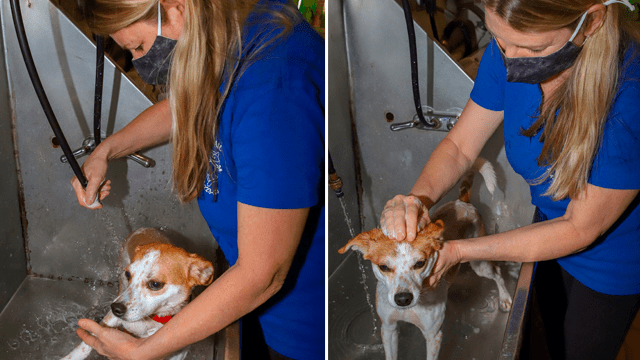
Are Those Woofs I Hear?
Off a nearby hallway is the dog room. The opening of the door immediately releases a torrent of barking in many different keys and some that haven’t yet been devised. While some dogs are being boarded, brought by people who had to temporarily move to places where they couldn’t bring their dog, most of them are there for adoption. Some owners died; others couldn’t afford to care for them anymore. And there are the strays.
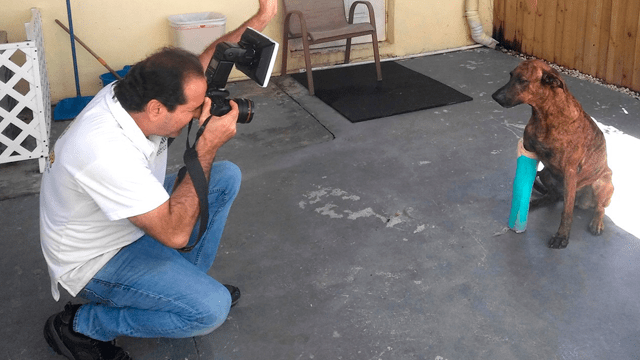
These dogs are all eager to be adopted, but none more than the senior dogs who have known homes and loving care. Meanwhile, the staff gives them as much attention as they can.
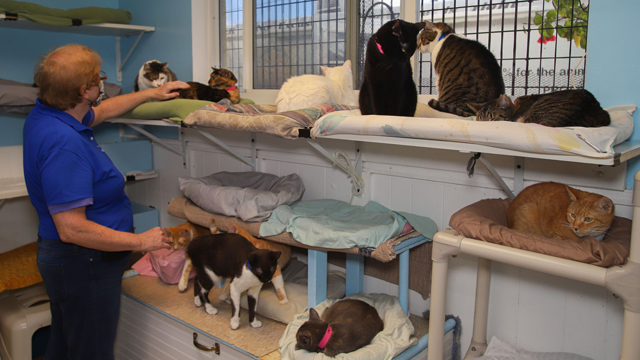
No, Not Millions of Cats
Down the hall is what is familiarly called the Zen Room, which has adult cats for adoption. Tamera’s mother, Lee, who joined Animal Aid in 2001 to help with incorporating and obtaining nonprofit status for the organization, greets you. The cats, which all have individual beds, a window to look out of, and the chance to interact with their roommates, have been spayed or neutered and vaccinated. The room’s nickname is well-earned. The dedication and love of the women working there clearly shows.
It is encouraging that cat and kitten adoptions increased during 2020 over the previous year. This probably was because more people were at home, craving companionship.
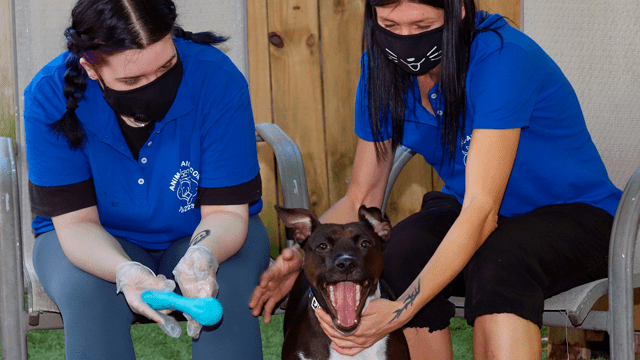
Advice on Adopting a Dog
Although Tamera is eager to have the dogs adopted, she is particular about would-be adopters. She tells them: “Think it through. Be sure you can make the commitment, that you have the time and the resources, and that the dog’s energy level matches your own”.
- If you’re largely sedentary, consider a senior dog. If it’s a big dog with a lot of energy, you’ve got to have space and/or be able to go to the dog park.
- Be careful with little dogs: they can be very nippy with children. I don’t recommend puppies for young kids.
- If you are over sixty-five and considering adopting a dog less than five years old, you will need a “dog parent.”
- If you are under twenty-five, you will usually need your own parent’s approval. Up to that age, young people are often transient, not very stable. There are exceptions, of course; some young people are married and already own their own home.
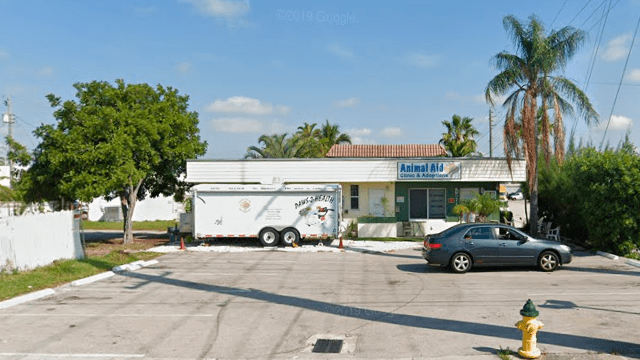
In addition, Animal Aid will usually not allow adoptions to a home with children under six, if other animals aren’t spayed or neutered, or if the animal will be let outside unattended.
Despite these potential hurdles, there are ample opportunities for human-animal matching. If you would like to adopt, please contact Tamera at 954-223-5378.
Open Your Hearts, Open Your Wallets
Whether or not you’re a candidate to adopt an animal, please consider a donation to Animal Aid. You can become a monthly supporter at www.animal-aid.com. You can also select Animal Aid, Inc. as your charity on Amazon Smile and a percentage of your order will be donated. For those of you who already have a dog or a cat, make an appointment for spaying/neutering, vaccines and other medical treatment.
And someday, we can all hope that the volunteer program, the thrift store, and the happy hours and other fundraisers will be fully operational. Until then, please do your best to help support this valuable community resource.
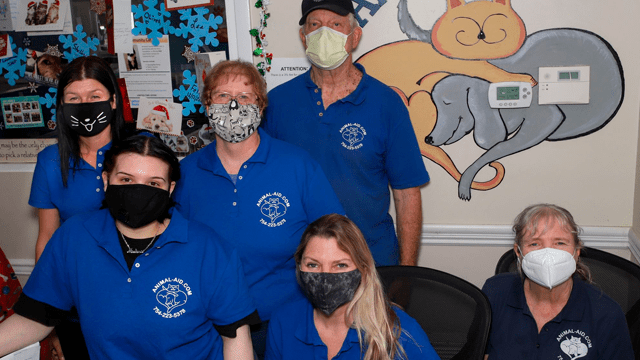
Animal Aid Wish List
If you can donate much-needed supplies, here are top items needed:
- Paper towels
- Trash bags
- Laundry soap, bleach
- All-purpose cleaner such as Fabuloso
- Hand sanitizer
- Puppy pee pads
- Cat litter
- Small pet beds
- Throw rugs, bathmats, towels
- Leashes, collars
- Wet cat food, wet dog food








